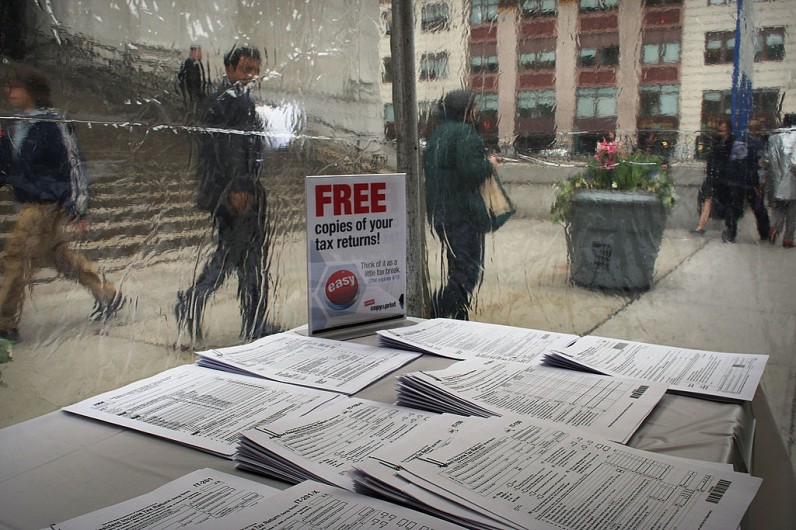
It's Tax Day! Today marks the final day for the majority of taxpayers to submit their 2023 returns.
Feeling unsure about your ability to file? Today marks your last chance to request an extension, granting you an additional six months to submit your documents and significantly minimizing the risk of incurring penalties or interest fees for late filing.
Tax Day 2024
As of March 29, the IRS had received an impressive 90.3 million returns and efficiently processed nearly 89 million of them. The average refund so far this year is $3,050, which is higher than the average refund of $2,910 at this time last year.
The deadline for filing an income tax return and paying taxes in most states is April 15. If you believe that you may not meet the deadline for submitting your return, it is possible to request an extension, but the application must be submitted by today at the latest.
However, it is important to keep in mind that even with an extension until October 15, any taxes owed must still be paid by today's deadline.
While an extension may allow for additional time to file, it's important to note that it does not grant an extension for payment. As a result, if you have an outstanding tax balance, you will be subject to fees and interest charges.
According to the IRS, it is advised to file your return by April 15 and make a partial payment if you are unable to pay the full amount you earned. The agency said taxpayers have the option to apply for an online payment plan if they are unable to pay their taxes in full by the deadline.
There are consequences for submitting your tax return after the deadline and for delaying your tax payment. The agency emphasized the importance of filing taxes by the deadline to avoid penalties and interest, even if taxpayers are unable to pay.
It is crucial for taxpayers to receive a prompt response regarding their acceptance or denial onto a payment plan, without the need for them to contact or send a letter to the IRS.
Typically, a penalty of 5 percent of the tax owed is imposed for each month or part of a month that the return is filed late. The maximum penalty that can be imposed is 25 percent.
As an illustration, if there is a tax debt of $1,000, a penalty of $50 will be incurred for each month or partial month that the return is submitted late.
For returns that are submitted more than 60 days past the due date, a minimum penalty of $485 or the smaller of the entire tax owed is imposed for failure to file taxes.
After five months of your return being late, the late-filing penalty reaches its maximum. However, it's important to note that additional fees and interest may still accumulate.
The late payment penalty, also known as the failure-to-pay penalty, is an additional charge that amounts to 0.5 percent per month or partial month, with a maximum fee of 25 percent of the unpaid taxes.
The unpaid funds will also accrue interest at a rate of 8 percent per year, based on current rates. This is calculated on a daily basis, so the amount will accumulate rapidly.
Experts are also cautioning taxpayers to consider the potential impact of time zones on their filing deadline, depending on their location.
The deadline for taxpayers to submit their return to the Internal Revenue Service (IRS) is midnight on April 15.
However, according to expert David Straughan, there are certain parts of the country where the cut-off is actually up to three hours earlier.
"One thing people may not think about when it comes to tax deadlines is time zones," said David Straughan, a diligent researcher and skilled writer at MarketWatch Guides. The deadlines that the IRS sets are based on Eastern Standard Time.
Tax Filing Action is Needed for Extension
According to experts, if you are unable to meet the April 15 deadline, the suggested course of action is to request an extension. If granted, the filers are given a six-month grace period to submit their documents, but it does not grant an extension for payment.
The deadline for filing an extension is today, April 15. The deadline to file your return is Tuesday, October 15, 2024.
It is possible to request a complimentary extension through the IRS. Basic information such as your name, address, Social Security number, and estimated tax liability will be required. Make sure you have the necessary funds available in case you need to make a payment.
Taxpayers have the option to electronically request an extension using IRS Free File. For those who would rather send a physical copy of the extension form, known as form 4868, it is important to ensure that it is postmarked before April 15, according to USA Today.







Join the Conversation